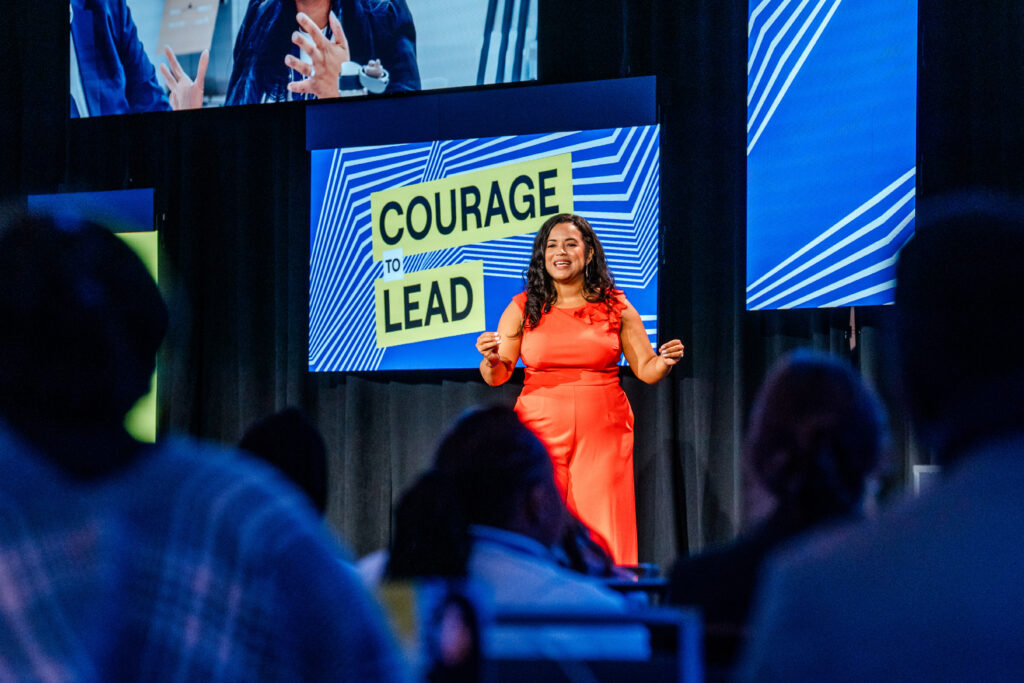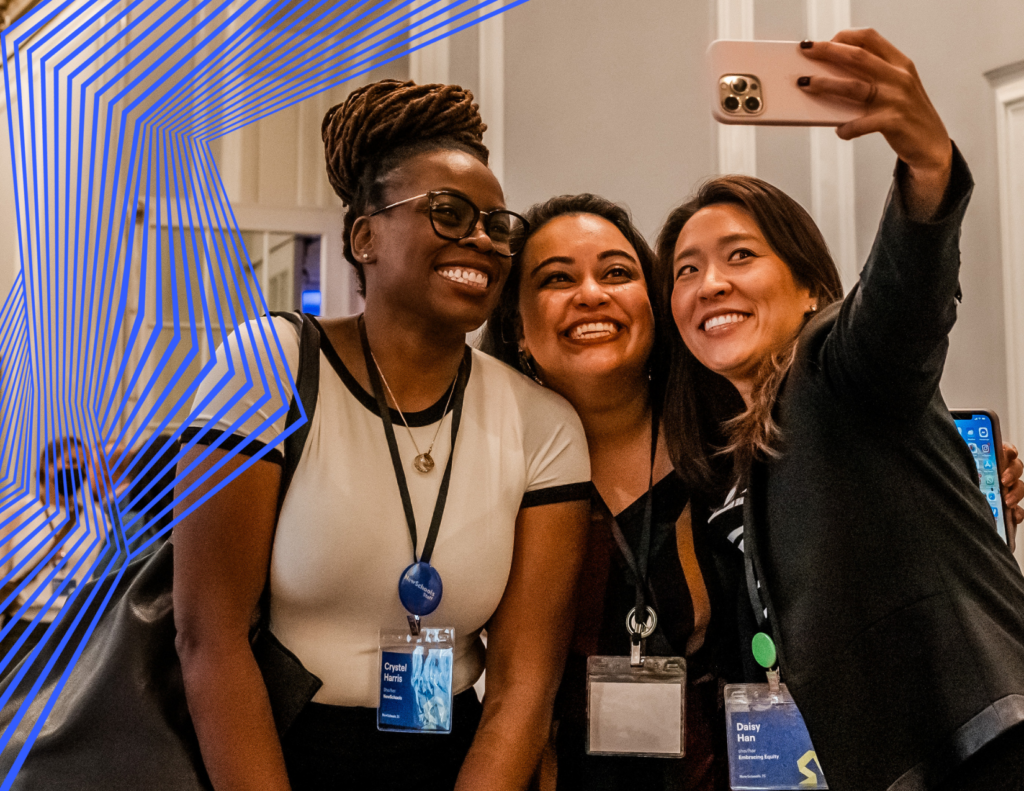This thought-provoking session was moderated by Saskia Levy Thompson.
Joining her as panelists were David Adams, Jacob Allen, Orly Friedman and Courtney Smith.
The session discusses the range of non-academic skills, mindsets, and habits that students must develop, in addition to academic abilities, in order to achieve their most ambitious dreams and plans. We hear from four school leaders on how they are working to advance student agency, identity development, and other competencies every day.
- “[We found] if a student had been retained [held back] in the lower school grades, even just once, they were not graduating from our school. [This told us] there was a huge piece of the puzzle we weren’t figuring out.” – Courtney Smith, Boston Collegiate Charter School
- “We realized we needed to stop relying on the resilience of individual kids. Our students are coming to us with risk factors. We need to address those.” – David Adams, Urban Assembly
- “How can we group students with a focus on the skills they need to move at their own pace without tying it to academics. We asked parents what are the habits and skills that you need at your job in order to be successful? Those included things like time management, focus, motivation, and then we asked ourselves …what does that mean for a five-year old? We ended up with five independence levels. We’re adding a sixth. A teacher will never be able to make a student work harder than if a student chooses to [work hard] themselves. Similar to the idea that nobody’s ever washed a rental car.” – Orly Friedman, Khan Lab School
- “[Also] Nothing does off-road like a rental.” – Saskia Levy Thompson, Carnegie Corporation of New York
- “Five-year olds need to be having conversations about what their daily lives are like. Most won’t get to that until they get to sociology class in college, if they go to college.” – Jacob Allen, pilotED Schools
- “Skills in time management and focus are nice-to-have for most students; for our students they’re must-have to advance.” – Orly Friedman
- “At first, we talked about opening a high school. We said maybe in high school they’re ready to talk about topics like race and gender and poverty…but we realized that was too late. Students are [already] feeling like college is for them or not for them by 9th” – Jacob Allen
- We’re relatively obsessed with metrics around socio-emotional development because schools are metric-driven organizations. We look at reduction in suspensions, but also growth in socio-emotional competencies.” – David Adams
The panelists also shared some of their own tools during the small group breakouts.


